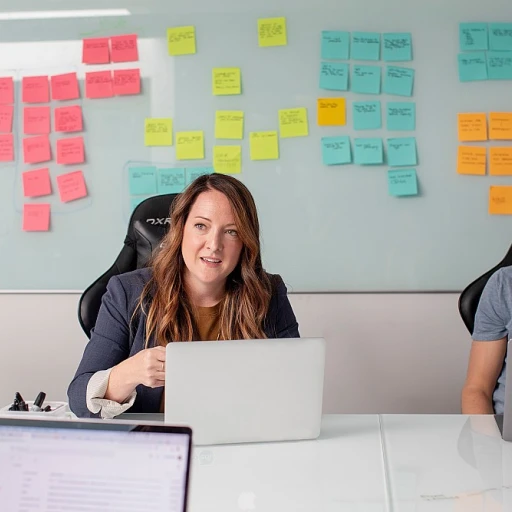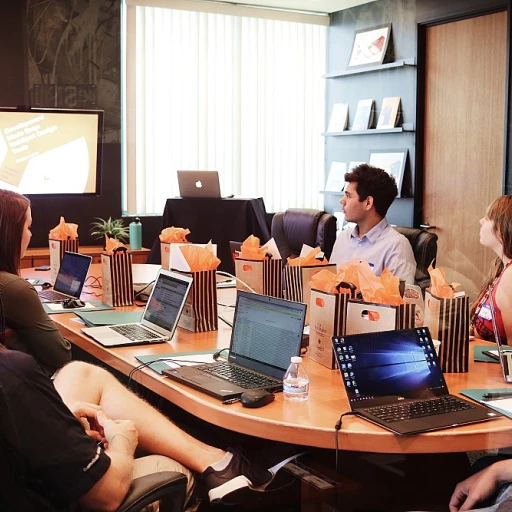
The Lifelong Learner's Mindset
Embracing the Mindset of a Lifelong Learner
Lifelong education isn't just reserved for children and young adults. In an era marked by rapid technological advancements and an ever-evolving job market, accommodating a mindset of perpetual learning is imperative. But what exactly does it mean to nurture a mindset geared towards continuous discovery? Simply put, it's about maintaining an open mind, a curious spirit, and a willingness to adapt and expand one's knowledge base throughout life. The true essence of lifelong learning lies in adopting an attitude that champions curiosity and flexibility. When individuals embrace this mindset, they become more resilient and adaptable in the face of change. This transformative way of thinking is not just a matter of adding qualifications to a résumé; it's about staying relevant, no matter one’s stage in life or career. One crucial aspect of being a lifelong learner is incorporating learning into daily activities. The beauty of lifelong learning is its versatility. Just as discussed in a similar vein in the section on integrating learning into one's daily schedule, seizing every moment to learn something new becomes second nature. From reading books, attending webinars, to simply engaging in thoughtful conversations, the opportunities for learning are endless. Another focal point of the lifelong learner’s mindset is the need to balance work and continued education effectively. Many feel the struggle of juggling professional commitments alongside personal growth endeavors. However, adopting this mindset alleviates the pressure, as it frames education as an ongoing journey rather than a destination. By understanding and embracing the importance of lifelong education, individuals can set themselves on a path to not only personal success but also fulfillment. Adaptability, creativity, and continuous growth are not just desirable traits; they are necessities in today’s dynamic world. To delve deeper into why continuous learning is critical for everyone in this fast-paced era, you might find this article on the importance of continuous learning insightful.Incorporating Learning into Daily Life
Making Learning Part of Your Everyday Routine
In our fast-paced world, it's become increasingly important to find ways to seamlessly integrate learning into our hectic schedules. Making learning part of your everyday routine doesn't just happen by accident; it requires intentional effort and consistency. To cultivate this habit, start by identifying windows of time in your day where you can accommodate learning activities. This could be during your commute, while exercising, or even during your lunch break. Utilizing technology can be especially helpful in this pursuit. With a plethora of educational podcasts, audiobooks, and online courses available at our fingertips, it's easier than ever to access knowledge without disrupting our day-to-day responsibilities. By doing so, we not only enhance our knowledge base but also stimulate our minds, keeping them agile and open to new ideas. Furthermore, think about setting specific, achievable goals for your learning journey. By clearly defining what you want to learn and setting a timeline for accomplishing these goals, you're more likely to stay committed. Whether your goal is to read a certain amount of pages each day or complete a module of an online course every week, having clearly defined objectives can keep you focused and motivated. Of course, incorporating learning into daily life can also involve others. Sharing what you learn with peers or participating in group discussions can bolster your understanding and retention of information. It’s not just about acquiring knowledge for yourself; it's about creating a collaborative environment where learning thrives. Balancing this continuous quest for knowledge with work responsibilities can be challenging, but it's not impossible. By methodically incorporating learning habits into your routine, you'll create a sustainable path for personal and professional growth. To understand why this is crucial for everyone, explore more about the importance of continuous learning and how it can profoundly impact your life and career.Balancing Work and Learning
Finding Harmony Between Career and Continuous Learning
Balancing a thriving career with continuous learning isn't just about time management; it's about tapping into the synergy between work and education. As our professional and personal landscapes evolve, so must our skill sets and knowledge. One of the keys to achieving this harmony is integrating learning opportunities into your daily workflow. Think of your job as both a source of income and a perpetually evolving learning environment. Whether you're honing leadership skills, mastering a new software, or diving deeper into industry trends, these activities don't just contribute to career progression, but also build your lifelong learning habits. You can achieve this balance by setting aside specific times for structured learning, be it attending industry conferences, enrolling in courses, or engaging in self-study during quieter moments at work. This structured approach can seamlessly bridge the gap between the formal and self-directed learning we discussed earlier in our series. Equally important is cultivating a mindset that embraces curiosity and agility in the face of new challenges. This mentality not only reinforces your adaptability in the workplace, but also ensures your learning journey remains both rewarding and enjoyable. To explore strategies that help integrate learning into your daily routine, you might find our discussion on enhancing personal growth through lifelong learning insightful.Formal Education vs. Self-Directed Learning
Navigating the Educational Landscape: Finding What Works for You
In the pursuit of enhancing our knowledge and skills, the choice between formal education and self-directed learning is often a pivotal decision. Both avenues have their unique merits and cater to different learning styles and needs. Formal education, with its structured curriculum and supportive environment, offers a sense of direction and accountability. It is beneficial for those who thrive under guidance and prefer a standardized approach to learning. University degrees, professional certifications, and workshops fall under this category, often providing credentials that are widely recognized in the professional world. On the other hand, self-directed learning allows for flexibility and personalization, making it an appealing option for many lifelong learners. This method empowers individuals to take charge of their learning journey, choosing what to study, when to study, and how deep to dive into each subject. With the wealth of resources available online, such as e-books, podcasts, and webinars, learners can tailor their education to fit their personal interests and career goals. For more insights on this flexible approach, exploring unlocking the power of lifelong learning can provide valuable guidance. Ultimately, the decision between formal and self-directed learning need not be an either-or choice. Many thriving lifelong learners find a balance between both methods, leveraging the structured insights of formal education while embracing the independence of self-directed study. By integrating strategies to incorporate learning into daily life, as previously discussed, one can effectively utilize both systems to enhance personal and professional development.Developing New Skills for Personal Growth
Embracing New Competencies for Self-Development
As we journey through life, the importance of developing new skills extends beyond immediate professional needs and ventures into personal growth. This quest for knowledge nurtures our curiosity and can revitalize our everyday experiences, improving the overall quality of life. Whether it’s learning a new language, mastering a musical instrument, or acquiring technical skills, the process of finding and mastering new competencies encourages both mental agility and emotional satisfaction. In the context of balancing work commitments, carving out time for personal skill development might seem challenging, yet it is a crucial component of a fulfilled life. This balance demands a strategic approach—scheduling specific times in your calendar for study or practice, much like you would for a meeting or appointment, ensures that personal growth remains a priority. Moreover, the ongoing dialogue between formal education and self-directed learning offers a rich tapestry of resources and opportunities to explore. Thanks to digital platforms and online courses, learning has never been more accessible, allowing us to select the means that best match our preferred learning style and pacing. Staying motivated as you acquire new skills often involves setting small, achievable goals, celebrating milestones, and maintaining a growth-oriented mindset. It's about appreciating the journey as much as the destination, understanding that each new skill contributes not only to your personal development but also enriches your contribution to the world around you. In essence, cultivating new skills for personal growth is a significant step on the lifelong learning roadmap, enhancing personal and professional dimensions. As we adapt and embrace the change around us, these skills ensure we remain agile, engaged, and ever-evolving.Staying Motivated on the Learning Journey
Keeping the Fire Alive in Your Learning Journey
Staying motivated on your learning journey can sometimes feel like a daunting task, especially when life throws its inevitable curveballs. However, maintaining that spark of curiosity is essential for a lifetime of learning. As we explored earlier, adopting a lifelong learner's mindset is foundational, but keeping the momentum requires ongoing effort and strategy.
One effective way to stay motivated is by setting clear, achievable goals. Whether you're balancing work and learning or incorporating learning into daily life, having a roadmap can guide your efforts and provide a sense of accomplishment as you reach each milestone. Consider breaking down larger goals into smaller, manageable tasks to maintain a sense of progress.
Another key to sustained motivation is finding learning methods that resonate with you personally. Whether through formal education or self-directed learning, choose paths that align with your interests and passions. This alignment not only makes the process more enjoyable but also more sustainable in the long run.
It's also crucial to celebrate your successes, no matter how small they may seem. Recognizing your achievements boosts your confidence and reinforces your commitment to personal growth. Share your progress with friends or a community of fellow learners who can provide support and encouragement.
Finally, remember that setbacks are a natural part of any learning journey. Embrace them as opportunities to learn and grow, rather than as failures. Reflect on what went wrong, adjust your approach if necessary, and continue moving forward with renewed determination.
By staying motivated and committed to your learning journey, you pave the way for continuous personal and professional development, ensuring that your pursuit of knowledge remains a fulfilling and lifelong endeavor.





